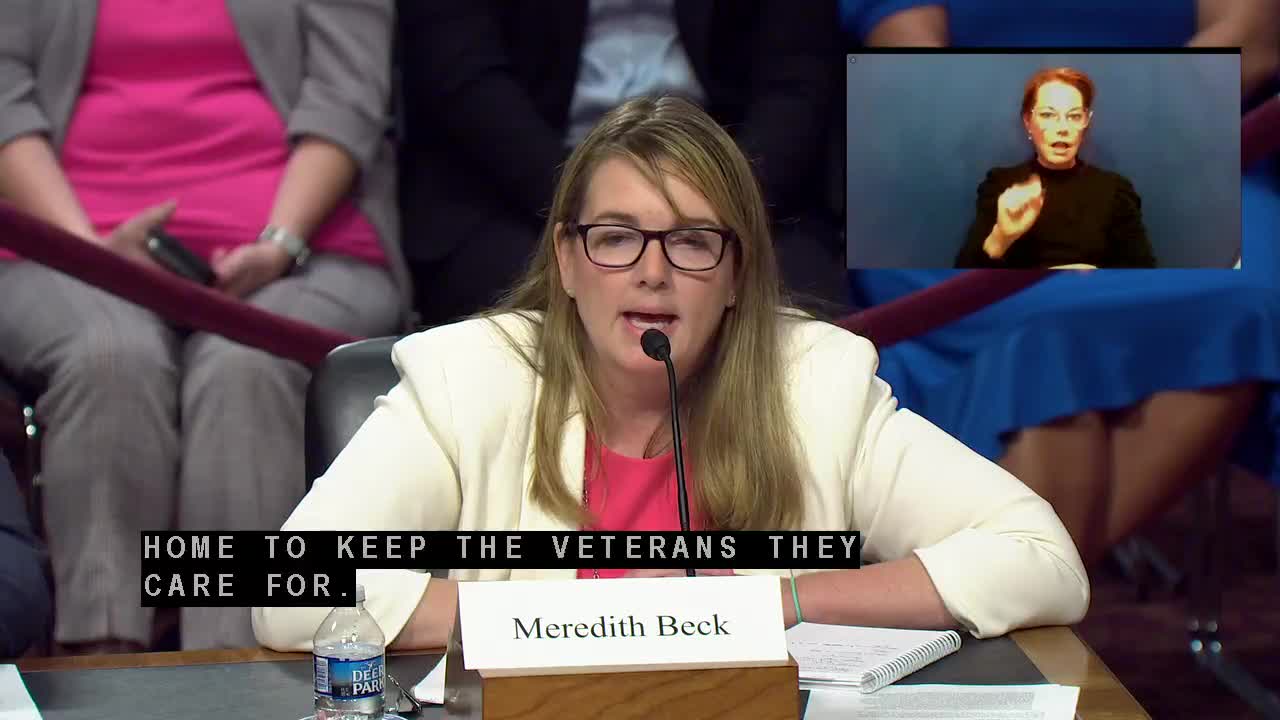Senators push for vital reforms in veteran caregiver support
June 05, 2024 | Veterans Affairs: Senate Committee, Standing Committees - House & Senate, Congressional Hearings Compilation

This article was created by AI summarizing key points discussed. AI makes mistakes, so for full details and context, please refer to the video of the full meeting. Please report any errors so we can fix them. Report an error »

In a recent government meeting, discussions centered on critical legislative changes aimed at improving care for veterans, particularly those requiring home-based services. A significant point of contention was the existing cap on benefits that may force veterans into nursing homes, as highlighted by various stakeholders, including representatives from the Department of Veterans Affairs (VA). The proposed legislation seeks to remove this cap, allowing veterans to receive necessary care in their homes, which is particularly vital for those with cognitive or mental health disabilities.
The meeting also addressed the establishment of veteran-directed programs at every VA medical facility. This initiative aims to empower veterans and their caregivers by allowing them to hire family members or friends for care, thus providing a familiar and comfortable environment for those in need. This flexibility is crucial for veterans who may not qualify for the Program of Comprehensive Assistance for Family Caregivers (PCAFC) but still require support.
Senator Ricketts emphasized the importance of quality benefits for the over 16 million veterans in the U.S., advocating for the Tax Cuts for Veterans Act, which proposes making military retirement pay tax-free at the federal level. He noted the substantial financial burden on military caregivers, who collectively provide $14 billion in unpaid labor annually, often incurring significant out-of-pocket expenses.
The meeting also highlighted challenges faced by veterans in rural areas, where access to healthcare services is limited. Virtual mental health programs have been introduced to assist caregivers and veterans in these regions, but concerns remain about the availability of home healthcare workers. Suggestions were made to increase reimbursement rates for these workers to improve access to care.
A key takeaway from the discussions was the need for better integration of outside medical records into the VA system to ensure veterans receive appropriate evaluations for assistance programs. Stakeholders called for legislative support to codify the VA's responsibility to assist in obtaining these records, which is currently reliant on the initiative of individual staff members.
Overall, the meeting underscored a commitment to enhancing the quality of care for veterans and addressing the unique challenges faced by their caregivers, particularly in rural communities.
The meeting also addressed the establishment of veteran-directed programs at every VA medical facility. This initiative aims to empower veterans and their caregivers by allowing them to hire family members or friends for care, thus providing a familiar and comfortable environment for those in need. This flexibility is crucial for veterans who may not qualify for the Program of Comprehensive Assistance for Family Caregivers (PCAFC) but still require support.
Senator Ricketts emphasized the importance of quality benefits for the over 16 million veterans in the U.S., advocating for the Tax Cuts for Veterans Act, which proposes making military retirement pay tax-free at the federal level. He noted the substantial financial burden on military caregivers, who collectively provide $14 billion in unpaid labor annually, often incurring significant out-of-pocket expenses.
The meeting also highlighted challenges faced by veterans in rural areas, where access to healthcare services is limited. Virtual mental health programs have been introduced to assist caregivers and veterans in these regions, but concerns remain about the availability of home healthcare workers. Suggestions were made to increase reimbursement rates for these workers to improve access to care.
A key takeaway from the discussions was the need for better integration of outside medical records into the VA system to ensure veterans receive appropriate evaluations for assistance programs. Stakeholders called for legislative support to codify the VA's responsibility to assist in obtaining these records, which is currently reliant on the initiative of individual staff members.
Overall, the meeting underscored a commitment to enhancing the quality of care for veterans and addressing the unique challenges faced by their caregivers, particularly in rural communities.
View full meeting
This article is based on a recent meeting—watch the full video and explore the complete transcript for deeper insights into the discussion.
View full meeting